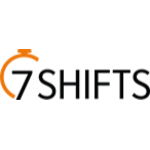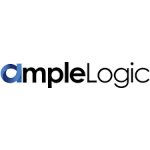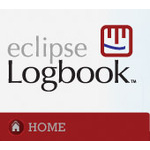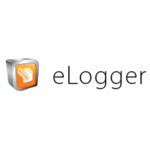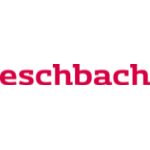TechnologyCounter provides genuine, unbiased real user reviews to help buyers make informed decisions. We may earn a referral fee when you purchase through our links, at no extra cost to you.
List of Best Log Book Software
Showing 1 - 11 of 11 productsAre you tired of juggling employee scheduling and managing your restaurant? Look no further than 7shifts, the all-in-one employee scheduling software. With intuitive features and real-time updates, 7shifts streamlines your workforce management so you...Read 7shifts Reviews
AmpleLogic Electronic Logbook is a all-in-one solution for efficient data recording and management. Designed to streamline your organizations record-keeping process, this software offers user-friendly features security measures to ensure accuracy and...Read AmpleLogic Electronic Logbook Reviews
Free Logbook is a solution for organizing your daily tasks and activities effortlessly! Say goodbye to the hassle of scribbling notes on paper or juggling between different apps. With its user-friendly interface features, Free Logbook is designed to...Read Free Logbook Reviews
Eclipse Logbook is a software for all your organizational and project management needs. Streamline your tasks, stay on top of deadlines, and collaborate efficiently with this innovative tool. Say goodbye to manual log keeping and hello to a more effi...Read Eclipse Logbook Reviews
eLogger is a software for optimizing your logging process. With its innovative features and user-friendly interface, eLogger takes logging to a whole new level. Say goodbye to manual logging and hello to streamlined efficiency with eLogger. Ready to...Read eLogger Reviews
Shiftconnector is a software that helps streamline communication and task management in the workplace. It allows for easy communication between different shifts and teams, ensuring a smooth transition and increased productivity. With user-friendly fe...Read Shiftconnector Reviews
Everlance is a solution to easily track and manage your business expenses. This innovative software is designed to simplify your financial tasks with its user-friendly interface features. Say goodbye to the hassle of manual expense tracking and let E...Read Everlance Reviews
Excel Pilot Logbook, the ultimate tool for pilots to track, manage, and analyze their flights. With its user-friendly interface features, this logbook streamlines the process of recording flight times, crew information, and aircraft details. Say good...Read Excel Pilot Logbook Reviews
Hubworks, your all-in-one solution for workplace management. With Hubworks, you can streamline your daily tasks, improve communication with your team, and save time and resources. Say goodbye to juggling multiple software and switch to Hubworks for a...Read Hubworks Reviews
Motive, the innovative software designed to revolutionize your work flow and boost productivity. With its user-friendly interface features, Motive is a solution for businesses to achieve their goals efficiently. Say goodbye to complicated processes a...Read Motive Reviews
Valgenesis is an innovative software that revolutionizes the way pharmaceutical, medical device, and biotech companies manage their compliance and quality processes. Its highly adaptable platform streamlines and automates critical tasks, providing a...Read Valgenesis Reviews
- What Is Log Book Software?
- Top Reasons Why Businesses Need Log Book Software?
- What Are the Top Key Features of Log Book Software?
- What Are the Top Benefits of Log Book Software?
- What Are the Steps to Choose the Right Log Book Software?
- What Are the Types of Log Book Software for Different Industries?
- What Are the Technology Trends for Best Log Book Software?
- What Are the Deployment Options for Log Book Software?
What Is Log Book Software?
Log book software refers to a computer-based system designed to facilitate the monitoring, documentation, and administration of significant data pertaining to an entity or an individual. The software has the capability to save data pertaining to the day-to-day activities, vehicles, or log books of maritime vessels.
Additionally, this technology has the capability to store several types of data, including financial records and medical records. Storing data in a manner that facilitates subsequent retrieval or analysis is a very efficacious approach.
Log book software commonly has functionalities for the creation of user accounts, storage of data, maintenance of an audit trail to track modifications, updating of records, and implementation of data backup mechanisms. Additionally, this software package has many tools for the purpose of data visualization and facilitating the dissemination of information among individuals.
These characteristics contribute to the enhancement of data storage precision and effectiveness. The utilization of log book system offers several key advantages, namely enhanced customer service, more efficient monitoring of staff and vehicles, greater interdepartmental communication, and enhanced financial tracking capabilities.
Furthermore, the utilization of thebest log book software serves to mitigate errors in data input processes and diminishes the need for human labor. In general, log book software provides companies, corporations, and individuals with a streamlined, economical, and safeguarded method for archiving crucial data pertaining to their day-to-day activities.
Log book system technology facilitates efficient and convenient retrieval of all records and can be utilized for the purpose of disseminating information to others.
Top Reasons Why Businesses Need Log Book Software?
1. The implementation of automated systems for monitoring job completion and evaluating staff performance offers enhanced opportunities for gaining valuable insights into work productivity.
2. Enhanced precision in the computation of payroll and other expenditures.
3. The use of measures to bolster the security of personnel records.
4. The log book system should include the capability to securely store and effectively handle documents pertaining to employees.
5. Enhanced cooperation and coordination among various departments and teams.
6. The implementation of strategies to improve workflow optimization and efficiency has been enhanced.
7. The implementation of automated report generating has been shown to enhance the process of decision-making.
8. The capacity to securely retain sensitive employee information while mitigating the potential for illegal entry.
9. The provision of immediate and up-to-date information regarding customer relations.
10. Efficient allocation of resources and human capital.
11. The best logbook software enhanced communication channels between employees and management.
12. One potential benefit of modern technology is the reduction of paperwork and reliance on physical filing systems.
13. Proficiency in efficiently overseeing staff attendance.
14. The improvement of customer service management.
15. Enhanced adherence to labor laws and other regulatory frameworks.
What Are the Top Key Features of Log Book Software?
The top key features of log book software include:
1. Flexible and Automated Tracking: The utilization of log book software enables individuals to safely monitor their entries and contact information, eliminating the need for manual data entry.
The software provides users with the capability to personalize their tracking systems, encompassing functions such as capturing driver profiles, documenting log entries, and maintaining records of maintenance activities.
2. Automatic Alerts: The log book system offers customers the capability to get notifications and updates upon the occurrence of specific activities or the fulfillment of deadlines. This practice guarantees that all individuals are consistently informed about significant content, hence minimizing the risk of overlooking any pertinent information.
3. Data Analysis and Reporting: The utilization of log book software enables users to access reports pertaining to their data, hence facilitating enhanced analysis and the extraction of valuable insights from the data. This facilitates precise evaluation of operational performance and the formulation of decisions based on empirical data.
4. GPS Tracking: The utilization of the best log book software offers customers the capability to employ GPS tracking functionalities, enabling the real-time monitoring of drivers and the documentation of their traveled routes. Additionally, this functionality facilitates the generation of information pertaining to fuel usage, vehicle speed, and driver behavior.
5. Compliance Monitoring: Log book software facilitates the monitoring of adherence to industry standards and regulations, including but not limited to Hours of Service (HOS) restrictions and Maximum Speed limits. This measure guarantees that all activities are carried out in compliance with legal regulations.
6. Fleet Management: The utilization of the best log book software enables customers to effectively and economically manage a fleet of cars. This facilitates improved management, increased operational effectiveness, and heightened safety within the collective group of vehicles.
7. Secure Data Storage: The utilization of log book system enables the secure storing of data, incorporating comprehensive backup and recovery functionalities. This measure guarantees the preservation and protection of all data, ensuring its confidentiality and availability in the event of any unforeseen circumstances.
What Are the Top Benefits of Log Book Software?
1. Improved accuracy: The utilization of log book software has the potential to mitigate errors in the process of documenting and monitoring crucial information pertaining to cars, including but not limited to mileage, fuel levels, maintenance records, and other relevant data.
2. Time saving: The utilization of online log book software has the potential to decrease the amount of time dedicated to manual data entry, hence enabling enhanced efficiency in analysis, reporting, and decision-making processes.
3. Improved asset monitoring: Logbook software is utilized to monitor and assess the utilization and efficiency of a vehicle, thereby guaranteeing that it is operating at its maximum potential.
4. Ease of access: Logbook software commonly offers convenient access to data for all relevant users, ensuring automatic updates and timely notifications as necessary.
5. Enhanced security: The utilization of log book software incorporates advanced encryption technology, which serves to safeguard the data from illegal access and potential misuse.
6. Real-time updates: The utilization of online log book software enables the provision of real-time updates to all users, so ensuring the prompt dissemination of information and facilitating well-informed decision-making processes.
7. Cost savings: The utilization of log book system has the potential to mitigate expenses related to errors, superfluous journeys, and travel.
What Are the Steps to Choose the Right Log Book Software?
1. Identify Your Requirements: Prior to selecting any logbook software, it is imperative to ascertain and delineate one's distinct requirements and the intended objectives that the software ought to fulfill. This encompasses the comprehension of the requisite data storage capacity and the desired degree of program interactivity.
2. Research & Compare Suppliers: Conduct a comprehensive examination of the logbook software options now available in the market and perform a comparative analysis to assess their compatibility with your specific requirements.
When conducting research on viable solutions, the best logbook software is important to consider many criteria such as the features provided, functionality, pricing, vendor reputation, customer service, product reviews, and other relevant aspects. Engage in conversations with vendors and user groups in order to acquire more ideas and suggestions.
3. Test & Make a Decision: After narrowing down the selection of logbook software options, it is advisable to conduct testing in order to verify their compatibility with your specific requirements.
Evaluate the level of user-friendliness, the financial implications, and the extent of customer support provided. Next, conduct a comparative analysis of the outcomes and thereafter determine the most suitable software solution based on your specific requirements.
4. Implement & Adjust: After the acquisition of the logbook software, it is necessary to proceed with its implementation and facilitate user familiarization with its functionality. It is imperative to establish a consistent training regimen and provide necessary assistance to users as required.
It is imperative to consistently monitor the usage and progress of the system in order to detect any potential issues and make necessary adjustments accordingly.
What Are the Types of Log Book Software for Different Industries?
Log book software utilized in many industries can be roughly classified into two distinct categories: proprietary software packages and open-source software. Proprietary software packages are developed, overseen, and upheld by a commercial software enterprise, typically customized to cater to a particular sector, such as engineering, healthcare, or manufacturing.
These software packages commonly provide a range of functionalities for the organization and storage of industry-specific data. These functionalities include the tracking and recording of customer information, inventory management, production monitoring, export management, and other data pertaining to log book activities.
Additionally, enhanced security measures are provided by these services, including automated backup functionality, access control mechanisms, and user authentication protocols. Furthermore, technical assistance and support services are available to users.
In contrast, open-source software is collaboratively developed by communities of users and developers without any limitations on its usage or dissemination. Open-source log book software often does not require any monetary payment and provides users with a diverse array of customizable features.
Some examples of software systems that fall within this category are Plone, Fedora, Drupal, SugarCRM, and MySQL. These software packages provide customers a range of modules and plugins that enable customization of their log book.
Additionally, several of these packages feature cloud-based hosting, enhancing accessibility across multiple devices. Proprietary software packages generally provide more comprehensive support and security features compared to their open-source counterparts.
What Are the Technology Trends for Best Log Book Software?
The technology trends for best log book software are as follows:
1. Cloud-Based: The accessibility of online log book software is essential for enterprises, as it enables them to input data from various devices, such as tablets and smartphones, regardless of their location.
Cloud-based systems have the capability to obviate the requirement for additional hardware and software, hence facilitating streamlined onboarding processes and time optimization.
2. UI/UX Design: The usability of log book system should prioritize ease of navigation and intuitive user interface. If the usability of the system is challenging, employees may be deterred from inputting information, perhaps leading to compromised data accuracy.
A visually appealing user interface and user experience design can enhance the usability and user engagement of the application.
3. Automation: The utilization of automation can enhance the efficiency of data input processes and reduce the duration required for data verification. Automation has the potential to mitigate data entry tasks and minimize manual errors, hence enhancing the precision and timeliness of logbooks.
4. Scalability: The scalability of online log book software is crucial for accommodating the growth of a business, necessitating a high degree of flexibility and adaptability. The program should possess the capability to cater to diverse user profiles and accommodate various types of data.
5. Integration: The integration of log books with other systems, such as Customer Relationship Management (CRM) and Enterprise Resource Planning (ERP) software, enables a more comprehensive perspective on the organization's data. This intervention is expected to optimize operational procedures, enhance transparency, and bolster efficiency.
What Are the Deployment Options for Log Book Software?
The available deployment methods for log book software are contingent upon its specific type and intended use.
1. A web-based log book is frequently accessible via an online interface that is maintained on a secure server and presented in a user-friendly design customized to meet the specific requirements of the user.
2. Standalone desktop log book software is accessible as an independent application that may be obtained through downloading and installation onto a user's computer, facilitating the monitoring and recording of various actions.
3. The utilization of cloud-based log book software has gained significant popularity due to its ability to be accessed remotely and its automatic storage of data in the cloud.
4. Additionally, log book system can be disseminated via mobile applications, so enhancing the ease and convenience of data entry on mobile devices.
